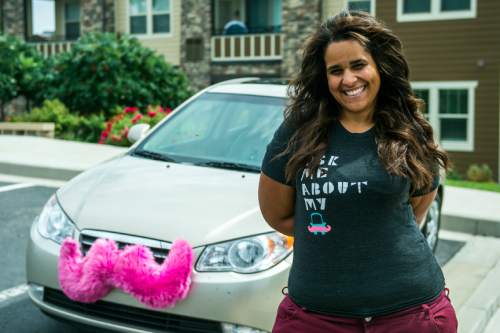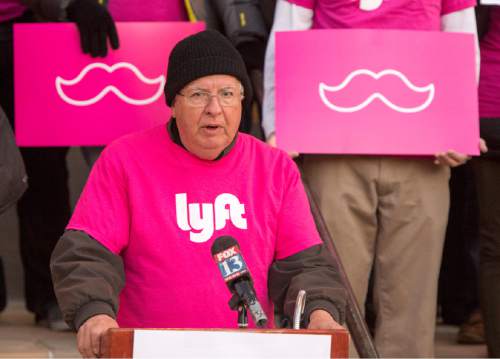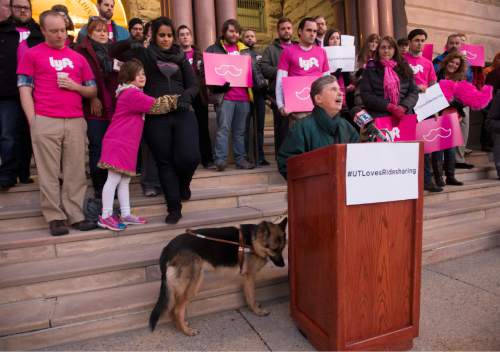This is an archived article that was published on sltrib.com in 2014, and information in the article may be outdated. It is provided only for personal research purposes and may not be reprinted.
After Salt Lake City adopted new ridesharing rules this week for services such as Lyft and Uber, the debate may next flag a ride to the Utah Legislature.
Rep. Dan McCay, R-Riverton, is working on a bill that may bring uniform statewide regulation for those companies — and could tweak or override what Utah's capital just did.
"We're trying to find a meaningful statewide standard," McCay said, "so it's not necessarily a piecemeal approach across the state."
He isn't criticizing Salt Lake City or its new rules, but says his bill may have different standards as details are worked out through ongoing negotiations with local governments and Lyft and Uber.
"When things happen in the state, they generally end up affecting Salt Lake City first," McCay said. "So the decisions they have to deal with are then decisions that the rest of the state is going to have to deal with."
Salt Lake City believed it needed to act quickly because it said city ordinances did not allow the ridesharing services to operate legally, although the companies disagreed. The city had even slapped some drivers with $6,500 fines after warnings, amid taxi company complaints that ridesharing firms broke laws they must follow.
Ridesharing services contend they are different than taxis, more like neighbors offering lifts to passengers who help pay for gas. The companies use online apps to connect drivers and passengers, and the firms keep 20 percent of the fares.
On Tuesday, the City Council did away with a previous 30-minute wait period for limousines and a $30 minimum charge, as requested by the companies.
But it required $1.5 million liability insurance for ridesharing cars. It also retained requirements for city driver background checks and vehicle inspections. Ridesharing companies say that duplicates what they already do.
"If the council's intention was to welcome ridesharing into Salt Lake City, these regulations clearly miss the mark," said Uber spokesman Michael Amodeo. "The council is attempting to fit a square peg in a round hole by passing outdated regulations that fail to recognize the unique nature of ridesharing."
So now the debate shifts to the Legislature, where McCay said he is trying to get all parties to talk to see if they can reach a consensus on regulation.
"Getting everyone to the table," he said, "can always bring an interesting perspective forward."
Now that Salt Lake City has acted, McCay said, "it's now a good time for the state to take a step back and look at how they want to deal with this from a statewide perspective."
He said negotiations are in the early stages, and details are in flux.
"The question is, what is the right approach," McCay said, "and where can we find a happy middle ground where they can provide the service and keep the public safe?"
He said how early he introduces his bill in the upcoming legislative session, which begins Jan. 26, depends "on how much consensus we get between both groups."
McCay added that his main goals are preserving "an opportunity for the service to be provided, and making sure that future providers of similar services are also able to participate."







